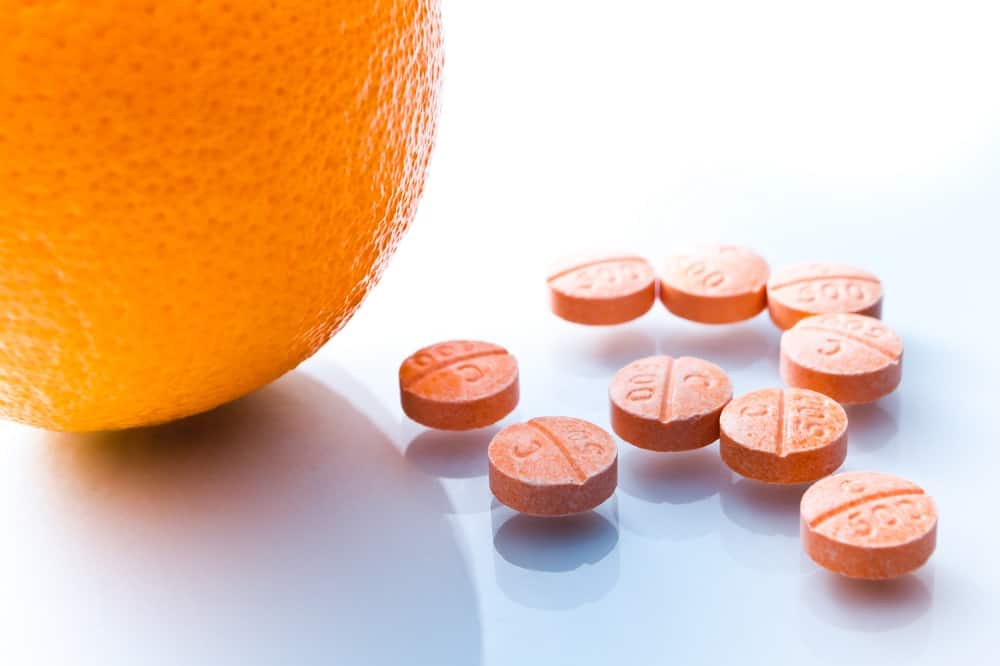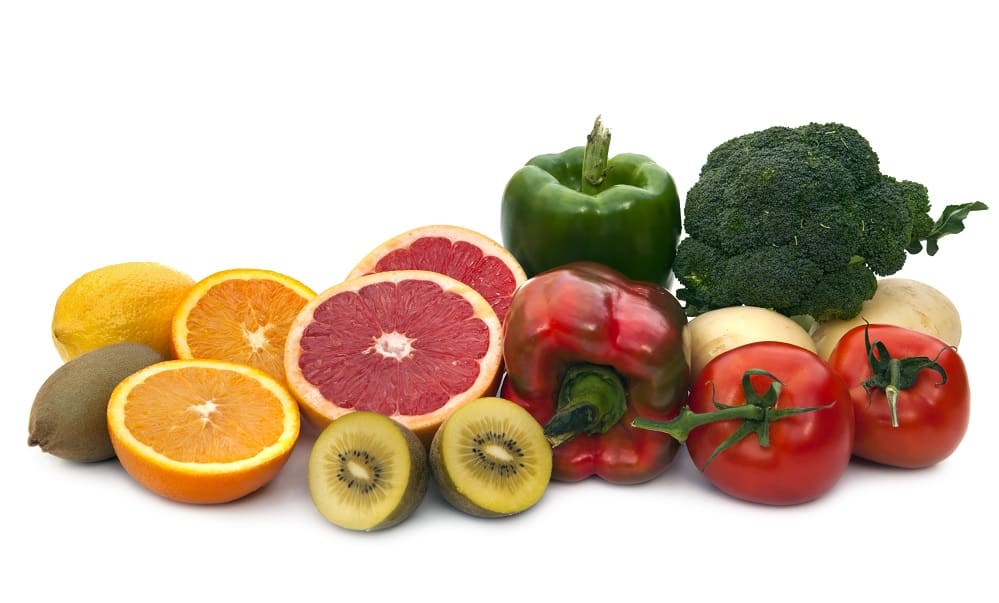Ascorbic acid is often marketed as a supplement to help improve immunity against diseases. It also has various benefits that can help improve fitness, physical appearance, and hygiene. Given the various positive impacts of ascorbic acid it should be a core vitamin component in every type of diet.
Ascorbic acid is considered vegan since it is a natural organic compound that can be obtained from plant-based foods such as fruits and vegetables. Ascorbic acid is only considered non-vegan if it is commercially produced into forms that use synthetically produced or animal-derived ingredients.
Table of Contents
What is Ascorbic Acid?

Ascorbic acid, more commonly known as Vitamin C, is a natural organic compound. It is most commonly found in plants, particularly fruits and vegetables.
Ascorbic acid has antioxidant properties which makes it ideal for preventing cellular degradation as well as improving the cell's immunity against diseases(1).
A variety of animals and plant species can synthesize abscorpic acid. However, humans and primates are unable to produce ascorbic acid(2). As such, they obtain it from food sources.
The ascorbic acid concentration in fruits and vegetables is at its peak when freshly picked. Over time, concentration levels of Vitamin C gradually decrease. Ascorbic acid also degrades when heated, boiled, or left at room temperature.
It is best to eat ascorbic acid-rich foods fresh or slightly cooked to retain as much ascorbic acid as possible. Processed, canned, or dried fruits and vegetables are often low in ascorbic acid.
Plant-based foods are often sufficient sources of ascorbic acid for humans. It is only recommended to take ascorbic acid supplements when a person's diet isn't a sufficient source of vitamin C.
Learn More: Common Vitamins that Vegan Diets Lack
The Recommended Dietary Allowance for Vitamin C in adults ages 19+ is 90mg for Males, and 75mg for Females(3). The Tolerable Upper Intake Level(UL =maximum daily intake unlikely to cause adverse health effects) for Vitamin C is 2g per day.
Is Ascorbic Acid Vegan?
Ascorbic acid is vegan. It is a naturally-occurring compound that is often sourced from fruits and vegetables. It has no animal source or animal-derived ingredients.
It is often commercially and industrially produced using two main ingredients: glucose and sorbitol.
Both of these ingredients are vegan-friendly. Ascorbic acid is created from the glucose extracted from starchy foods like corn. The glucose undergoes fermentation to create ascorbic acid.
Note: Raw vegans might abstain from ingesting commercially produced ascorbic acid due to being processed/refined.
While ascorbic acid is generally vegan, its various applications can be non-vegan. Ascorbic acid can take the following forms: gum, tablet, drops, spray, and serum.
Gum
Gum form usually involves gelatin which is made from boiled animal skin and is therefore not vegan.
Tablet
The tablet form is typically vegan but may include non-vegan ingredients that are sourced from animal fat such as magnesium stearate and stearic acid.
Drops
Ascorbic acid drops are often vegan. However, several contain sugar which is cause for concern.
The issue with sugar arises from the way in which beet and cane sugar are filtered. A large portion of sugar in the United States is filtered with bone char (primarily cattle). However, there are vegan friendly methods that are used to filter sugar that involve granulated carbon and ion-exchange systems. The way in which the sugar is filtered is often not disclosed on the label.
Some ascorbic acid drops may use artificial food coloring agents which are often tested on animals. To an ethical-vegan this is cause for concern. However, depending on the food coloring, a dietary vegan might be okay with it as they're synthetically produced (contain no animal or animal by-products).
Sprays
Ascorbic acid sprays as a dietary supplement are commonly vegan and sourced from fruits. However, it is best to check the manufacturer's label to ensure a vegan-friendly formulation.
Serum
Serumm is mostly derived from plants and takes the form of sodium ascorbyl phosphate, which is vegan-friendly but synthetic. Some serum formulations, however, are not vegan-friendly as they may contain traces of glycerin which is commonly sourced from animal fat.
Vegan Sources of Ascorbic Acid

There are ample vegan sources of ascorbic acid. Usually, ascorbic acid is more concentrated in citrus fruits. However, non-citrus fruits like guava, strawberry, and papaya are rich in ascorbic acid. Vegetables like broccoli are also rich in ascorbic acid.
Vegans are unlikely to become deficient in ascorbic acid. Most fruits are enough to fill the DVI of ascorbic acid in any type of diet. One of the richest fruits in terms of ascorbic acid content are oranges with around 96mg.
For vegetables, spinach and broccoli are among the richest in ascorbic acid with around 96mg and 81mg, respectively. Other good vegan sources of ascorbic acid are plums, cherries, kale, peppers, kiwi, and brussels sprouts.
Final Thoughts
Ascorbic acid is an important vitamin for all types of diets. Fruits and vegetables are the preferred source of ascorbic acid as they are natural, fresh, raw, and unprocessed which satisfies all forms of veganism.
References:




